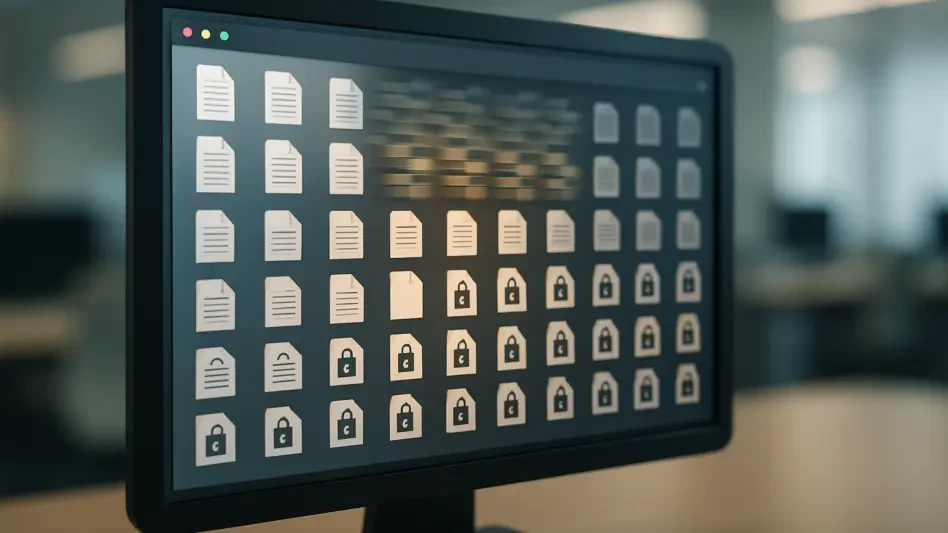In a disturbing turn of events that has caught the attention of many in Bucks County, Pennsylvania, a deceptive text message scam impersonating the Philadelphia Department of Revenue has emerged as a significant threat to local residents. These fraudulent messages, which started circulating earlier this week, entice recipients to click on a malicious link by promising a refund, only to steal sensitive banking details. With over 12 percent of the county’s population employed in Philadelphia, the scam capitalizes on the trust these individuals place in city agencies, making the communications appear deceptively legitimate. City officials have swiftly responded, urging the public to remain vigilant and skeptical of unsolicited texts, while stressing that no evidence points to a breach in municipal databases, suggesting the scam originates from external sources. This incident serves as a stark reminder of the persistent and evolving dangers of cyber fraud, prompting a deeper look into both the specifics of this threat and the broader landscape of digital deception.
Unpacking the Immediate Threat
Exploiting Regional Connections
This text message scam specifically targets Bucks County residents by leveraging their geographic and economic ties to Philadelphia, a connection that lends an air of credibility to the fraudulent communications. The messages, posing as official correspondence from the Philadelphia Department of Revenue, create a false sense of urgency by offering a supposed refund, prompting recipients to act quickly without verifying the source. Such tactics prey on human psychology, exploiting the natural inclination to trust familiar institutions and respond to financial incentives. The impact is particularly felt in a community where many commute to or work in Philadelphia, as the familiarity with city entities lowers suspicion. City officials have been clear that legitimate agencies do not request sensitive information via text, and residents are strongly advised to report suspicious messages as spam and delete them immediately to avoid falling victim to this calculated deception.
Protective Measures for Residents
As the scam continues to target unsuspecting individuals, authorities are emphasizing actionable steps to safeguard personal information from falling into the wrong hands. The Philadelphia Department of Revenue has reiterated that no banking or personal details should ever be shared in response to unsolicited texts, and residents should refrain from clicking on any links embedded in such messages. Reporting these fraudulent communications to local authorities or federal agencies like the FBI can help track and mitigate the spread of the scam. Additionally, deleting suspicious texts without interaction is a critical first line of defense, preventing scammers from gaining access to devices or data. This guidance is especially vital for Bucks County residents, who may feel a heightened sense of trust due to their ties to Philadelphia, making them prime targets for such schemes. Staying informed about official communication protocols remains a key strategy in avoiding these digital traps.
Exploring the Wider Cyber Fraud Landscape
Evolving Tactics of Digital Deception
The text scam affecting Bucks County is just one piece of a much larger puzzle of cyber fraud, where scammers employ increasingly sophisticated methods to deceive their targets across various platforms. Techniques like phishing, which involves fake emails or websites mimicking legitimate businesses, vishing, using phone calls to extract personal data, and pharming, where browsers are hijacked to redirect users to fraudulent sites, are all part of this growing threat. These methods often rely on advanced technology, such as Voice over Internet Protocol (VoIP), to disguise the scammer’s identity and create convincing scenarios, whether it’s a government refund or a bank alert. The common thread among these tactics is the exploitation of trust in everyday communication channels, making it challenging for even tech-savvy individuals to detect the ruse. This evolving landscape underscores the need for constant vigilance against digital threats that adapt to bypass traditional security measures.
Building Awareness and Resilience
Combating the wave of cyber fraud requires a strong emphasis on public education, as highlighted by both the Philadelphia Department of Revenue and the Pennsylvania Attorney General’s Office in their recent advisories. Residents are encouraged to verify any questionable communication through trusted channels, such as official websites bearing the “phila.gov” domain, rather than responding directly to unsolicited messages. Reporting suspicious activity to federal entities like the Internet Crime Complaint Center or the FBI through designated hotlines or online portals is another crucial step in curbing these scams. Beyond individual actions, community awareness campaigns play a vital role in spreading knowledge about scam indicators, such as poor grammar in messages or unfamiliar web links. By fostering a culture of skepticism and verification, authorities aim to empower individuals to protect themselves against the psychological and technological manipulations employed by scammers in an era of relentless digital threats.
Long-Term Strategies for Safety
Looking beyond immediate responses, the fight against cyber scams calls for long-term strategies that address both individual and systemic vulnerabilities exploited by fraudsters. Educational initiatives must extend into schools, workplaces, and community centers to ensure that people of all ages understand the risks of sharing personal information online or over the phone. Collaboration between local governments and federal agencies can enhance tracking and prosecution of cybercriminals, disrupting their operations before they reach widespread impact. Additionally, technology companies are urged to develop more robust tools to detect and block fraudulent communications, such as improved spam filters or alerts for suspicious links. For Bucks County residents and others in similar situations, staying updated on the latest scam tactics through reliable news sources or official bulletins is essential. These combined efforts aim to create a safer digital environment where trust is not so easily weaponized by those with malicious intent.








